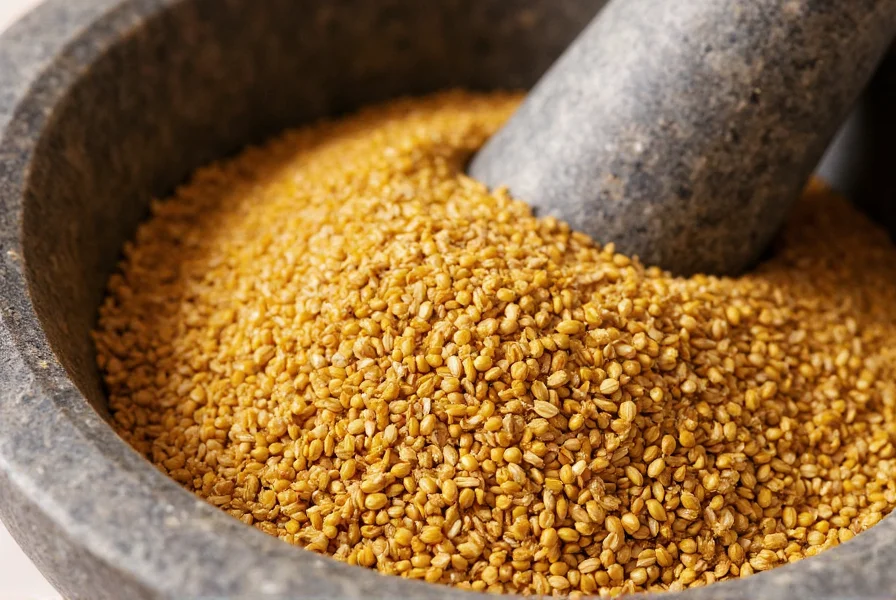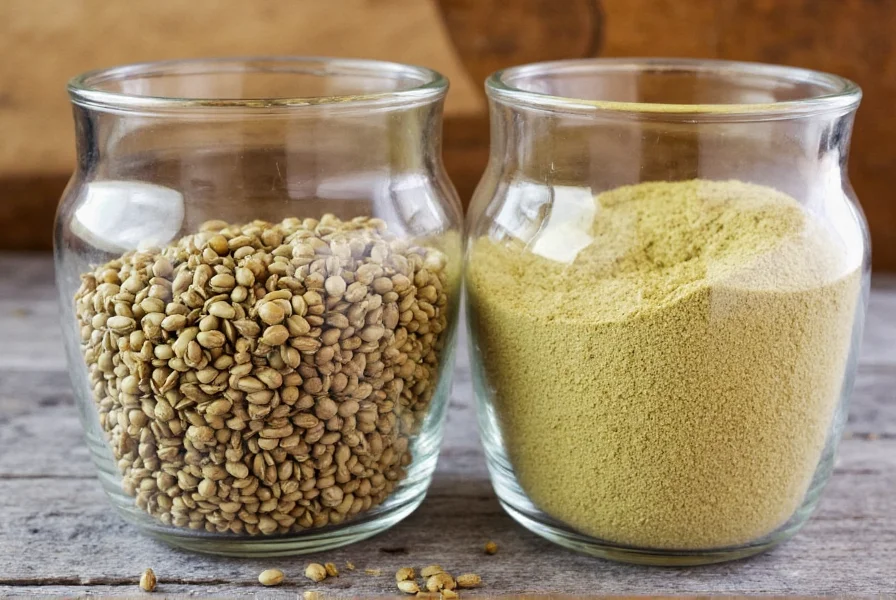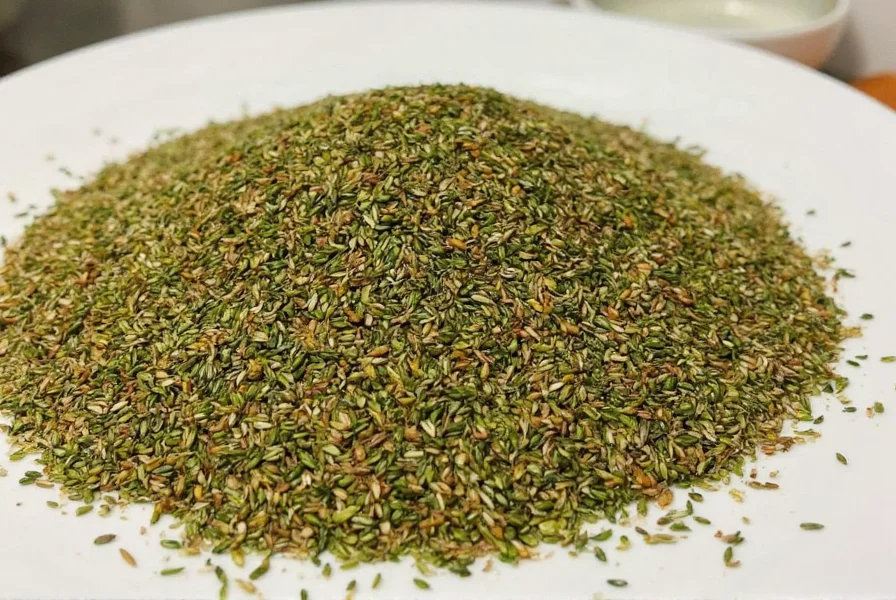Coriander seeds offer a versatile flavor profile that transforms ordinary dishes into aromatic culinary experiences. Unlike their leafy cilantro counterparts, these tiny round seeds provide earthy warmth with lemony undertones, making them indispensable in spice cabinets worldwide. Chefs prize them for their ability to balance rich meats, brighten vegetable dishes, and add complexity to baked goods.
Understanding Coriander Seeds
Often confused with cilantro (which comes from the same plant), coriander seeds represent the mature fruit harvested after the plant flowers. Their distinctive flavor develops fully when toasted, releasing essential oils that ground coriander powder alone cannot replicate. Whole seeds maintain their potency for up to a year when stored properly, while pre-ground versions lose aromatic compounds within weeks.

Essential Preparation Techniques
Maximizing coriander seed flavor requires proper preparation. Always toast whole seeds before use to awaken their complex flavor profile. The transformation from raw to toasted creates deeper, nuttier notes while reducing any soapy undertones some detect in raw seeds.
| Preparation Method | Best For | Flavor Impact |
|---|---|---|
| Dry toasting in skillet | Main dishes, spice blends | Rich, nutty, complex |
| Light toasting | Sauces, dressings | Bright, citrus-forward |
| Raw grinding | Baked goods, delicate dishes | Subtle, herbal |
10 Flavorful Coriander Seed Recipes
1. Classic Indian Coriander Seed Chicken Curry
This traditional recipe showcases how coriander seeds form the aromatic foundation of Indian cuisine. Start by dry-toasting 2 tablespoons whole coriander seeds until fragrant, then grind with cumin, turmeric, and ginger. Sauté with onions and tomatoes for a rich base that transforms chicken into an aromatic masterpiece. This easy coriander seed recipe for beginners delivers authentic flavor without specialty ingredients.
2. Lemon-Coriander Seed Roasted Vegetables
Toss root vegetables with olive oil, 1½ tablespoons freshly ground coriander seeds, lemon zest, and sea salt. Roast at 400°F until caramelized. The citrusy notes of coriander seeds complement sweet vegetables like carrots and parsnips, creating a side dish that elevates weeknight dinners. This simple preparation demonstrates effective coriander seed marinade recipes for vegetables.
3. Coriander Seed and Garlic Naan
Infuse homemade naan with 1 tablespoon finely ground coriander seeds mixed into the dough. The subtle warmth enhances the bread's flavor without overpowering, creating perfect accompaniment for curries. This traditional Indian coriander seed dish transforms basic flatbread into something extraordinary with minimal effort.
4. Coriander Seed Crusted Salmon
Create a flavorful crust by combining 2 tablespoons coarsely ground coriander seeds with lemon zest, black pepper, and a touch of honey. Press onto salmon fillets before pan-searing. The toasted coriander seeds develop complex flavors that pair beautifully with fatty fish, demonstrating how to use coriander seed recipes for fish dishes.
5. Moroccan Coriander Seed Carrot Soup
Sauté onions with 1½ tablespoons toasted coriander seeds, then add carrots, vegetable stock, and a touch of orange juice. Blend until smooth for a velvety soup with warm, citrusy undertones. This recipe exemplifies how coriander seeds enhance sweet vegetables while adding sophisticated depth.
6. Coriander Seed and Yogurt Marinade
Mix 3 tablespoons freshly ground coriander seeds with Greek yogurt, garlic, and lemon juice for a tenderizing marinade. Ideal for chicken thighs or lamb, this preparation allows the enzymes in yogurt to work with coriander's aromatic compounds for maximum flavor penetration. Discover why professional chefs consider this one of the best coriander seed preparation techniques for meats.
7. Coriander Seed Flatbread with Sea Salt
Sprinkle whole coriander seeds onto rolled pizza dough or flatbread before baking. The seeds toast in the oven, releasing their essential oils directly onto the bread surface. This simple technique creates artisanal flavor with minimal effort, perfect for homemade bread enthusiasts.
8. Coriander Seed and Orange Marmalade
Add 1 tablespoon crushed coriander seeds to your orange marmalade recipe during the simmering stage. The warm spice notes complement citrus beautifully, creating a sophisticated spread for toast or glaze for meats. This unexpected application shows the versatility of coriander seed recipes beyond savory dishes.
9. Coriander Seed Vinaigrette
Whisk together 1½ tablespoons freshly ground coriander seeds, Dijon mustard, red wine vinegar, and olive oil. The toasted spice adds complexity to simple green salads, transforming basic dressings into restaurant-quality creations. Learn how to incorporate coriander seed recipes into everyday salad preparations.
10. Coriander Seed Shortbread Cookies
Incorporate 2 teaspoons finely ground coriander seeds into your favorite shortbread recipe. The subtle warmth complements buttery richness while adding sophisticated depth. These elegant cookies demonstrate how coriander seeds can elevate traditional baked goods with unexpected complexity.
Storage and Substitution Guidance
Store whole coriander seeds in an airtight container away from light and heat. Properly stored, they maintain peak flavor for 12-18 months. For optimal freshness, buy small quantities from stores with high turnover. When substituting, remember that 1 teaspoon whole seeds equals approximately ¾ teaspoon ground coriander, though toasting whole seeds always delivers superior flavor.

Frequently Asked Questions
What's the difference between coriander seeds and cilantro?
Coriander seeds come from the same plant as cilantro (Coriandrum sativum) but represent different parts. Cilantro refers to the fresh leaves and stems, which have a bright, citrusy flavor with some detecting soapy notes. Coriander seeds are the dried fruit of the plant, offering warm, nutty, citrusy notes that deepen when toasted. They're essentially the same plant at different life stages.
How do I properly toast coriander seeds for maximum flavor?
Heat a dry skillet over medium heat, add whole coriander seeds in a single layer, and toast for 2-3 minutes while shaking the pan frequently. They're ready when fragrant and slightly darker in color. Remove immediately to prevent burning, as seeds continue cooking from residual heat. Properly toasted coriander seeds should smell citrusy and warm, not bitter or burnt.
Can I substitute ground coriander for whole seeds in recipes?
While you can substitute ground coriander for whole seeds (use ¾ teaspoon ground for every 1 teaspoon whole seeds), the flavor profile differs significantly. Whole seeds toasted and freshly ground deliver brighter, more complex flavor than pre-ground versions. For best results in traditional Indian coriander seed dishes, toast and grind your own seeds just before use.
Which dishes benefit most from using coriander seeds?
Coriander seeds excel in Indian curries, Middle Eastern spice blends, pickling recipes, roasted vegetable dishes, and certain baked goods. They particularly enhance chicken, lamb, fish, root vegetables, and citrus-based preparations. Their warm, citrusy notes balance rich ingredients while adding complexity without overwhelming other flavors in the dish.











 浙公网安备
33010002000092号
浙公网安备
33010002000092号 浙B2-20120091-4
浙B2-20120091-4